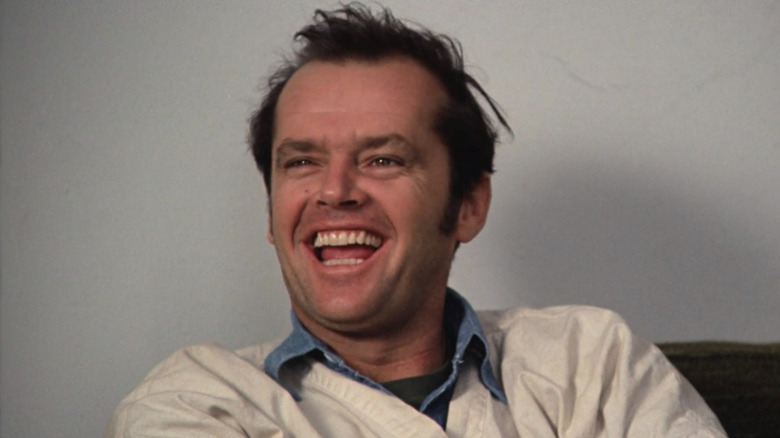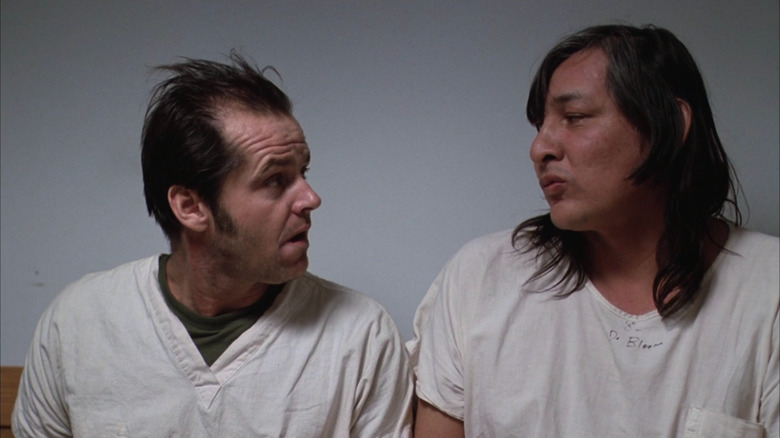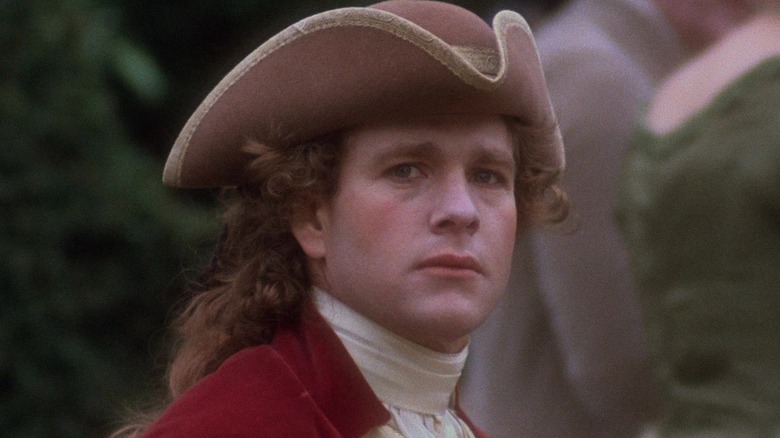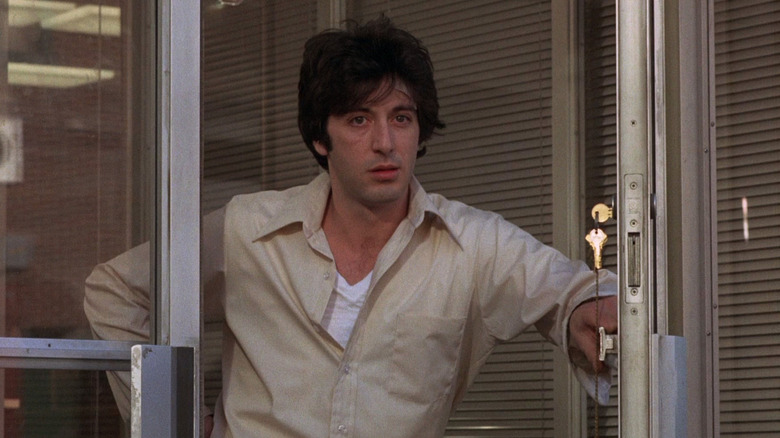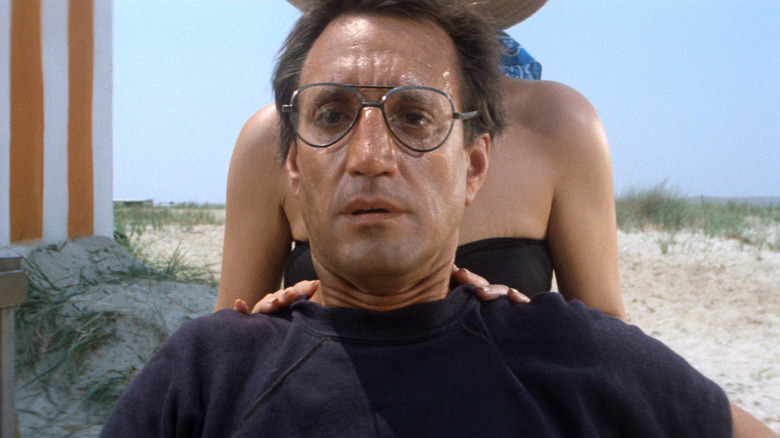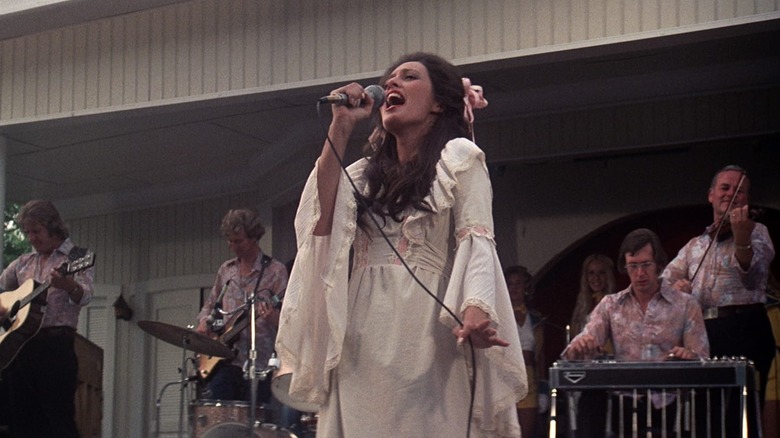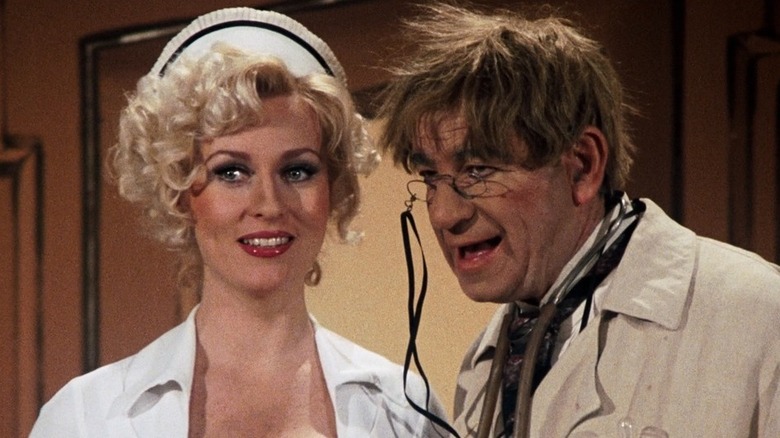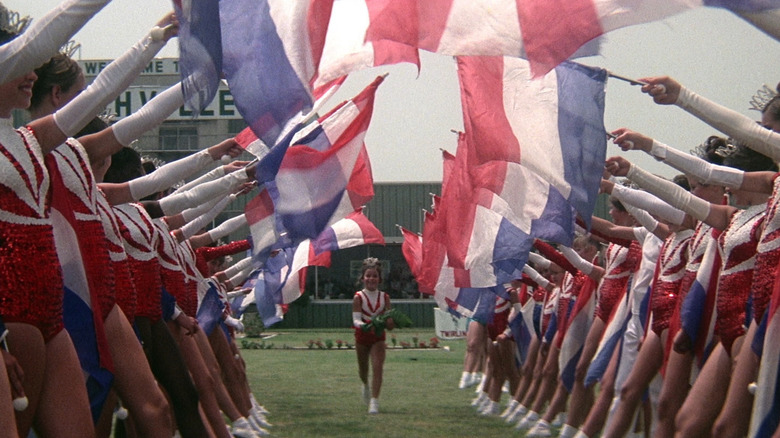Was The 1976 Best Picture Race The Most Competitive Oscars Category Of All Time? An Investigation
(Welcome to Did They Get It Right?, a series where we look at an Oscars category from yesteryear and examine whether the Academy's winner stands the test of time.)
Within this "Did They Get It Right?" column I've been doing, I have had a sub-column called "Was This the Most Competitive Oscars Category of All Time?" It's where I look at categories where every single nominee is an absolute banger — where you could easily imagine any of them winning and be happy with the result. They are rare, but they do happen. When I first introduced this sub-column with the 1994 Best Actor race, I knew the one slate of nominees I had to eventually get to immediately. I even shouted it out in the first paragraph of that piece. And the time has finally come to tackle it.
I'm of course talking about Best Picture at the 1976 Academy Awards, where Miloš Forman's "One Flew Over the Cuckoo's Nest" reigned supreme over Stanley Kubrick's "Barry Lyndon," Sidney Lumet's "Dog Day Afternoon," Steven Spielberg's "Jaws," and Robert Altman's "Nashville." For my money, this is the most incredible line-up of nominees in any category in the history of the Oscars. It's incredibly rare that five films you could reasonably call "masterpieces" all came out in the same year, have them all be recognized for their greatness contemporaneously, and have maintained their stature — or even grown — in the decades since. Five all-time filmmakers making five of their finest works.
Because the slate is so good, it may come as a surprise that the race itself wasn't particularly close. "One Flew Over the Cuckoo's Nest" didn't just win Best Picture. It dominated that year's Oscars. How does what should be the most competitive category of all time end up not being all that competitive?
Rare winner of the 'Big Five'
Only three movies in the history of the Academy Awards have ever won the "Big Five" categories, which are Best Picture, Director, Actor, Actress, and Screenplay. They are "It Happened One Night," "The Silence of the Lambs," and, of course, "One Flew Over the Cuckoo's Nest." It won all five at the Golden Globes as well, making it the only film to do both. At the BAFTAs the following year, it won four of those five (not Best Screenplay) but also walked away with Best Supporting Actor for Brad Dourif and Best Editing. It won DGA and WGA awards and got Best Picture from the Los Angeles Film Critics at their inaugural awards in a tie with "Dog Day Afternoon." This is straight-up domination, y'all.
As to why "One Flew Over the Cuckoo's Nest" was ahead of the pack, it's not clear-cut. Its reviews were good, but not particularly glowing. What "Cuckoo's Nest" was, though, was a massive hit. In a year when "Jaws" became the first modern blockbuster, Forman's film was the second-highest grossing of the year. Unlike "Jaws," which to some was seen as elevated genre trash, this was precisely the kind of tragicomic, bitter, and explosive drama that just about everyone could agree on.
You also have the Jack Nicholson factor, who came off of a year with "Chinatown" where he was the presumed frontrunner for Best Actor. He was due for a win and attached himself to the absolutely perfect project for his talents that pushed the right buttons of the populist side of the Academy, as well as its snobbier sect. The Academy will almost always embrace exciting, loud drama over nearly anything, and "Cuckoo's Nest" provided that in a great package.
Why not Barry Lyndon?
Stanley Kubrick's Oscars history is a little weird. He got nominated for Best Director for "2001: A Space Odyssey" but wasn't nominated for Best Picture. A couple of years later, he got a Best Picture nod for "A Clockwork Orange" but not one for Best Director. "Barry Lyndon" was the first time Kubrick finally got nominations in both categories and in retrospect, I think many of us would find that odd.
Since its release, this is the one "major" Kubrick film that has been seen as a massive disappointment. Financially, it certainly was, and for years, it garnered this reputation as something long, emotionally detached, and tedious to the point that the modern reclamation of "Barry Lyndon" has become so effusive that many consider it his best work. Even the critics who really liked it at the time, like Roger Ebert, called it "detached."
Even with all that, it still garnered seven Oscar nominations and won four. "Barry Lyndon" succeeded in awing its audience, cleaning up in the below-the-line craft categories like Best Cinematography or Art Direction. It's the equivalent of something like "Dune" winning a bunch of technical awards today but not being able to claim the top prizes. To win Best Picture, you need an Academy to be either heavily emotionally invested in the story or make them feel good about themselves for a political message.
Oftentimes, it's both that does it. Kubrick's wryly comedic period drama about an Irish scoundrel isn't really going to do that. "Barry Lyndon" is the kind of movie that gets the obligatory tip-of-the-cap Best Picture nomination because no one can deny it's a monumental achievement. Still, they are never going to give it that award, even if it deserves it.
Why not Dog Day Afternoon?
If I were to guess what came in second place for Best Picture, it would be Sidney Lumet's masterful bank heist drama "Dog Day Afternoon." I mentioned that the film tied with "One Flew Over the Cuckoo's Nest" for Best Picture with the Los Angeles Film Critics Association, and I believe it was a close second all year. It is another highly accessible populist drama with a central explosive performance by one of the bright new stars of the 1970s. It is another massive box office hit as the fifth highest-grossing film of 1975. I think there are three main reasons why it was always playing catch-up to "Cuckoo's Nest."
For one, "Dog Day Afternoon" came out in September 1975, and "Cuckoo's Nest" was released in November. Recency bias has always been a factor in the Academy Awards race, and I think Lumet's film paid the penalty of coming out just a bit too early to where the explosiveness of the Best Picture winner could drown out the echoes of the explosions from two months earlier. Secondly, Jack Nicholson was just a little further along than Al Pacino in terms of being "due." Remember, Nicholson was the frontrunner for "Chinatown," which was the same year as "The Godfather Part II." Once Nicholson got his, then Pacino could.
Lastly, I'm sure that a lot of Academy members were uncomfortable with the notion that Pacino was playing someone in love with a trans woman who wanted to use the money from this bank robbery to pay for her affirmation surgery. Even Pacino himself was somewhat uncomfortable with that. They may have been bowled over by "Dog Day Afternoon," but we've seen time and time again the Academy neglect to award a queer story.
Why not Jaws?
One of the biggest controversies about the 1976 Academy Awards was that Steven Spielberg was not nominated for Best Director for his landmark, breakthrough feature "Jaws," which smashed box office records. That made him the sole director of a Best Picture nominee that year who didn't get nominated. Instead, that slot went to Federico Fellini for "Amarcord." We've all seen the video of Spielberg reacting to the nominations, and I have already covered this in a previous installment of "Did They Get It Right?"
"Jaws" received four Oscar nominations, and while the only one it didn't win was Best Picture, the three it took home are of a similar technical variety as "Barry Lyndon," as it won Best Editing, Sound, and Score, marking John Williams' second Oscar win. Its problem with winning in the top categories, however, is basically the complete opposite of Stanley Kubrick's film.
The analogy I used for that film was "Dune." The analogy I could use for "Jaws" is "Mad Max: Fury Road," "Top Gun: Maverick," or "Avatar." Everyone who watched it had an absolute blast at the theater and came back to see it again and again, but they weren't going to give it the ultimate respect.
If you thought genre entertainment had a tough time at the Oscars now, it was much worse back then, especially with only five nominees to work with. There was no "prestige" in a film like "Jaws." It was the B-movie that became an A-movie. It's the foundational text for the next five decades of Hollywood filmmaking, but that doesn't mean the Academy is going to see it that way. I'm guessing most would've said that "Jaws" was their "favorite" movie of the year but not the "best," a distinction I always dislike considering art's inherent subjectivity.
Why not Nashville?
Last but not least on the slate is Robert Altman's country music-filled satire of America "Nashville." If "One Flew Over the Cuckoo's Nest" was the populist pick of the year, then "Nashville" was the critics'. It won the top prizes from both the New York Film Critics and National Society of Film Critics organizations, and it also tied with "Barry Lyndon" with the National Board of Review. Both Gene Siskel and Roger Ebert named it their favorite film of the year, which was not a common occurrence for the critics.
I think "Nashville" has a few things working against it for the Academy to be in lockstep with the critics. While we see the film as a collection of some of the finest actors of the era packed into one film — including Lily Tomlin, Shelley Duvall, Ned Beatty, and Jeff Goldblum — it was a cast of character actors and not stars.
The Academy loves big-name movie stars, and these were people either brand new to the scene or folks you might recognize but not know the names of. The biggest star at the time was probably Karen Black, an Oscar winner who mostly played supporting roles. Because of the gigantic ensemble cast, the movie lacks a traditional protagonist or antagonist, which makes it difficult to quantify the drama for some Oscar voters.
But I think the biggest impediment for "Nashville" to Oscar glory is that it ends on such a bummer note. This isn't a bummer in the sense that "Cuckoo's Nest" is, which is filled with a tremendous amount of pathos. "Nashville" ends in a way that leaves you completely shaken, making you sit in your seat and contemplate the hopeless underbelly of America. Critics are far more willing to award that than the Academy.
What didn't make the cut?
You would think that because this slate of nominees is so strong that the well of quality goes so deep that a bunch of other great works got left out. This was not a 2007-esque situation. 1975 proved to be a very top-heavy year when it came to the Academy. All five movies were also the nominees at the Golden Globes. Four of the five were on the National Board of Review's Top 10, excluding "Jaws." When it came down to voting for the nominees, it was difficult to imagine another film sliding in there.
Looking down the other categories, the most-nominated films not in there were the "Funny Girl" sequel "Funny Lady" and the disaster film "The Hindenburg." Both movies made money, particularly "Funny Lady," but both pictures were roundly disliked. Their Oscar nominations all came in the technical categories, which makes sense considering the budget and craft going into those films.
You also have the Neil Simon-penned comedy "The Sunshine Boys," which took home Best Supporting Actor for George Burns and the Golden Globe for Best Musical or Comedy. If I were to guess, this would be in sixth place, though not a strong sixth. This film, along with the Warren Beatty-starring "Shampoo," was going to have an uphill climb because the Academy frequently downplays comedy.
There is also the looming factor of "Amarcord," which not only got a Best Director nomination for Federico Fellini but also a Best Original Screenplay nod. That does show strong support, but as with comedy, a film not in the English language generally has a tough go at the Oscars too. Though the New Hollywood era did help that out a bit, especially in the Best Director category. I think these five were always the five.
If I picked the winner
As I said, just about anyone would be perfectly happy with any of the five films nominated winning Best Picture at the 48th Academy Awards. While I am content with the result that we got, it would not have been my choice as to what should have won Best Picture. Instead, my vote would go to Robert Altman's "Nashville." Not only do I consider this film to be the best of 1975, but I believe it to be one of the 10 greatest films ever made. Period.
With Altman's signature overlapping dialogue, creating a cacophony of sound unlike any other film you have ever seen, and his acute sense for human behavior, "Nashville" is a staggering achievement on every level. For as ambling and loose as its 160-minute running time is, the wheels are always turning, creating moments of elation, sadness, embarrassment, and every other emotion you can imagine, climaxing with a gut punch that couldn't be more bitter and powerful.
Using the country music scene of the titular city as a microcosm for everything happening in America at the time may seem like an unusual setting, but it results in a titanic piece of work thanks to Altman, screenwriter Joan Tewkesbury, the overflowing cast, and a collection of songs written for the film that range from hilarious to heartbreaking.
My only quibble with how the Oscars turned out in 1976 was that "One Flew Over the Cuckoo's Nest" took home the Big Five awards. I would have appreciated some spreading of the wealth considering how strong the competition was that year. Then again, "Cuckoo's Nest" is a great movie, so who am I to complain about it winning? The Academy should be commended for having a Best Picture category worthy of that name. They should do that more often.
